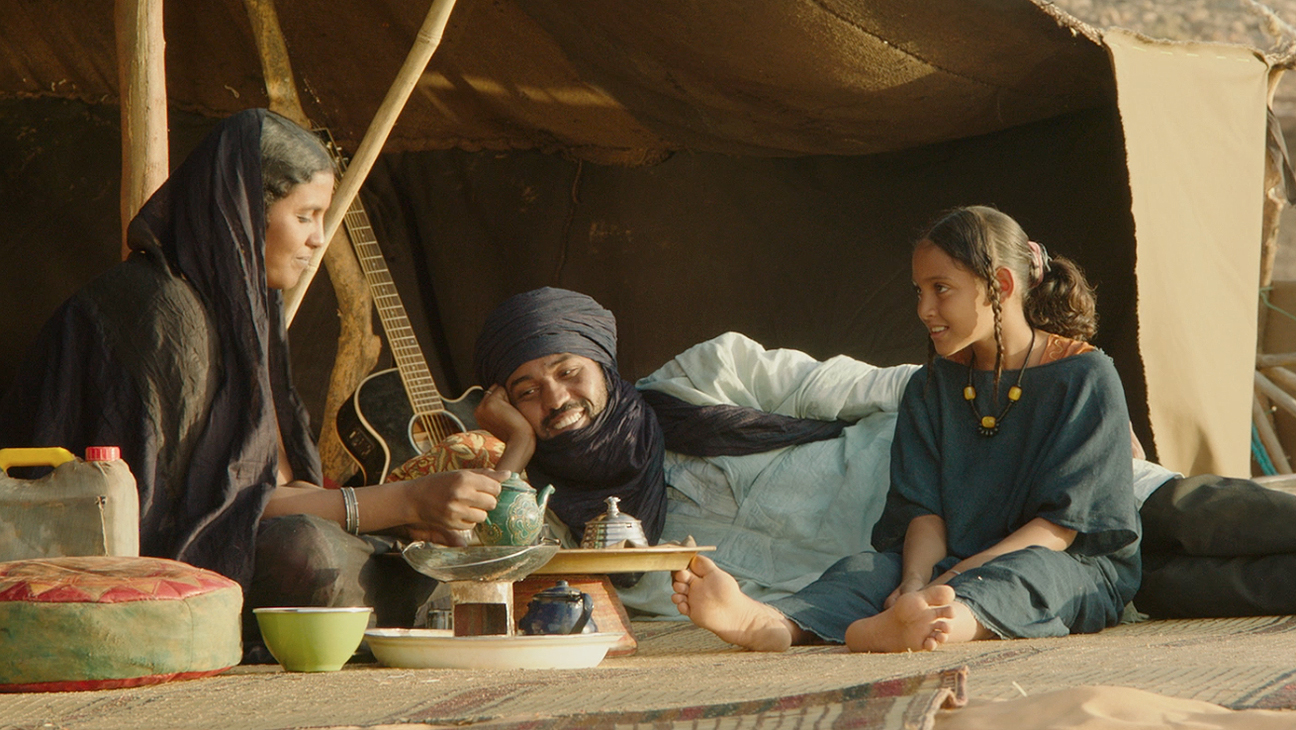A heartbreaking, inexorable tragedy served by one stupendous visual composition after another, Abderrahmane Sissako’s Timbuktu is a masterpiece. The Mauritanian locations are a plausible stand-in for Malian Timbuktu and the desert around it – yes, I went there before it became a no-go zone - with luminous cinematography by Sofian El Fani, but the human interest is never secondary.
Sissako gets magnetic performances from the actors playing the beautiful Bedouin family at the heart of the film (pictured below), but he also manages to make the men of Ansar Dine, the jihadist extremist occupiers of Timbuktu, if not entirely sympathetic, then at least comprehensible. Everything feels natural, unforced; the expected – in the shape, for instance, of what might happen to the protagonist’s beautiful wife (Toulou Kiki) after an unwelcome visit – rarely happens.

The slowly unfolding disaster that enfolds central character Kidane (Ibrahim Ahmed dit Pinto), made all the more poignant by the fact that a manslaughter does demand some kind of justice and reparation, is powerfully counterpointed by the already famous set-pieces: a football match without a ball, a singer who is lashed for her “crime” turning her wailing into a stupendous vocalise, the stoning of a “sinful” couple, a Cassandra-like outsider who speaks truth to power.
It’s all the more remarkable that Sissako’s moral fable follows the more leisurely and sometimes opaque Bamako; one wonders what a third instalment in an essential trilogy about Mali might be like. There’s more to be said about the pride of Mali’s women and its music, both coming together in the all-too-brief extra which interweaves filming of Fatoumata Diawara in the recording studio with clips from the film, more of a trailer than a decent supplement.















Add comment